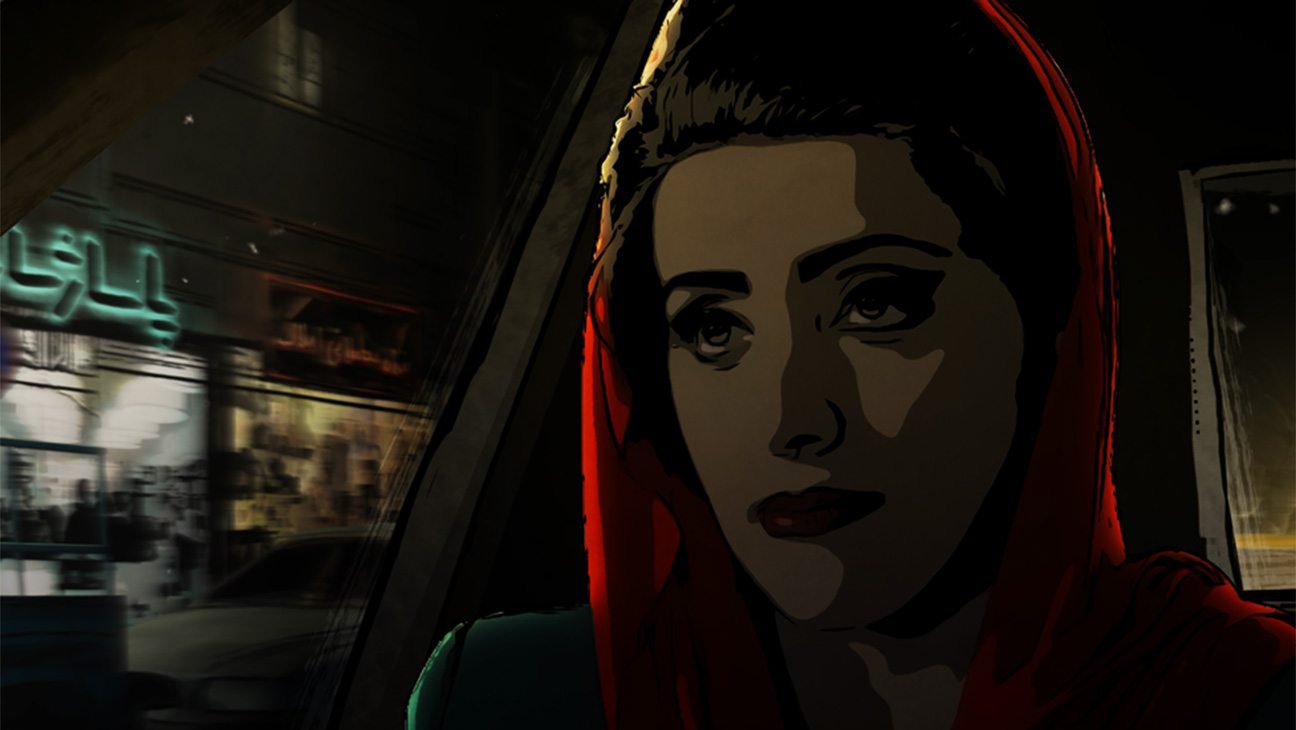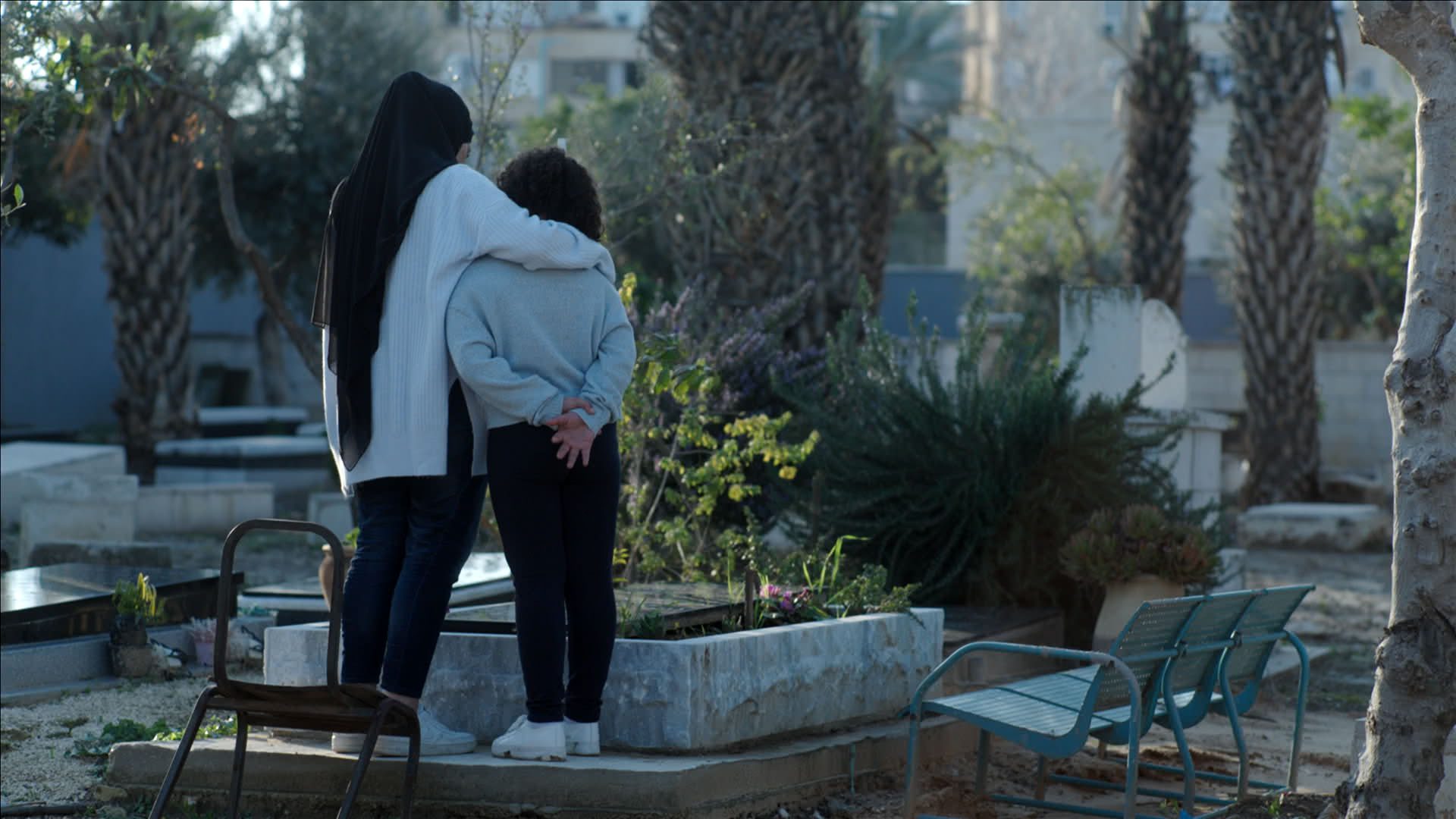 Directed by expat Iranian filmmaker Ali Soozandeh,?Tehran Taboo tells the stories of?three strong-willed women who cross paths in Tehran?s divided society where sex, corruption, and drugs coexist with strict religious laws and patriarchal traditions. Through rotoscoping technology, its use of real actors provides genuine depth to the characters yet the animation also provides a safe distance for the audience to explore provocative subjects.
Directed by expat Iranian filmmaker Ali Soozandeh,?Tehran Taboo tells the stories of?three strong-willed women who cross paths in Tehran?s divided society where sex, corruption, and drugs coexist with strict religious laws and patriarchal traditions. Through rotoscoping technology, its use of real actors provides genuine depth to the characters yet the animation also provides a safe distance for the audience to explore provocative subjects.
 Taboo tells two distinct stories side by side, one of moral indignation, and one of sexuality and gender oppression. In a country where morality is held in high regard, we bear witness to the fact that it exists in law only. While an Imam holds the keys to divorce for young mother Pari (Elmira Rafizadeh), he also uses that as leverage to keep her as his prostitute. Donya (Negar Mona Alizadeh) seeks to have surgery to make her appear as a virgin for her fianc? out of fear that he would kill her lover. In Taboo, women are treated as commodities that maintain their value only if they remain pure. (As a result, sexuality within the film is also used by the women as a form of rebellion–or even emancipation–as they seek to reclaim the use of their own bodies from the oppression of a patriarchal society.) In many ways, the film is a testament to what happen when religious influence is wielded as a sword, rather than with grace. Morality within this culture remains empty. There is no actual help for the broken in this film. In fact, in many ways, the broken are feasted on by the powerful.
Taboo tells two distinct stories side by side, one of moral indignation, and one of sexuality and gender oppression. In a country where morality is held in high regard, we bear witness to the fact that it exists in law only. While an Imam holds the keys to divorce for young mother Pari (Elmira Rafizadeh), he also uses that as leverage to keep her as his prostitute. Donya (Negar Mona Alizadeh) seeks to have surgery to make her appear as a virgin for her fianc? out of fear that he would kill her lover. In Taboo, women are treated as commodities that maintain their value only if they remain pure. (As a result, sexuality within the film is also used by the women as a form of rebellion–or even emancipation–as they seek to reclaim the use of their own bodies from the oppression of a patriarchal society.) In many ways, the film is a testament to what happen when religious influence is wielded as a sword, rather than with grace. Morality within this culture remains empty. There is no actual help for the broken in this film. In fact, in many ways, the broken are feasted on by the powerful.
 Taboo is also a reminder of the many stories that go largely ignored within the midst of large urban contexts. While the powerful go about their day, these women suffer. Each one has a story to tell, yet each also lives in fear that she might be discovered. As a pastor, I am reminded of how Jesus spent time with the prostitutes and tax collectors, showing them a love that offered genuine hope. He knew their stories and he showed grace. Like those stories in Scripture, the lives of these women matter, despite what the culture chooses to believe.
Taboo is also a reminder of the many stories that go largely ignored within the midst of large urban contexts. While the powerful go about their day, these women suffer. Each one has a story to tell, yet each also lives in fear that she might be discovered. As a pastor, I am reminded of how Jesus spent time with the prostitutes and tax collectors, showing them a love that offered genuine hope. He knew their stories and he showed grace. Like those stories in Scripture, the lives of these women matter, despite what the culture chooses to believe.
However, in the midst of their pain and oppression, one can still see goodness. Despite her circumstances, Pari also demonstrates a passionate love for her son. The sacrifice of her body is as much for his benefit as it is of her own survival.?In fact, much of the story is told through the eyes of a Pari’s young son. He bears witness to all of the pain and yet has no response. This way of life is simply accepted by him as it is all he knows. He is present as his mother offers sexual services. He befriends another woman who is being hunted by the morality police. Like us, he watches but is helpless to affect change. Has he completely lost his innocence? Will he recognize the affect that culture has upon these women and attempt to live differently as he grows into manhood? Or will he simply view these events as ‘the way it should be’? By the end of the film, these questions are left unanswered yet we also are left with the sense that he will bring hope to the next generation.
Tehran Taboo has its North American premiere this weekend at Animation is Film 2017.





